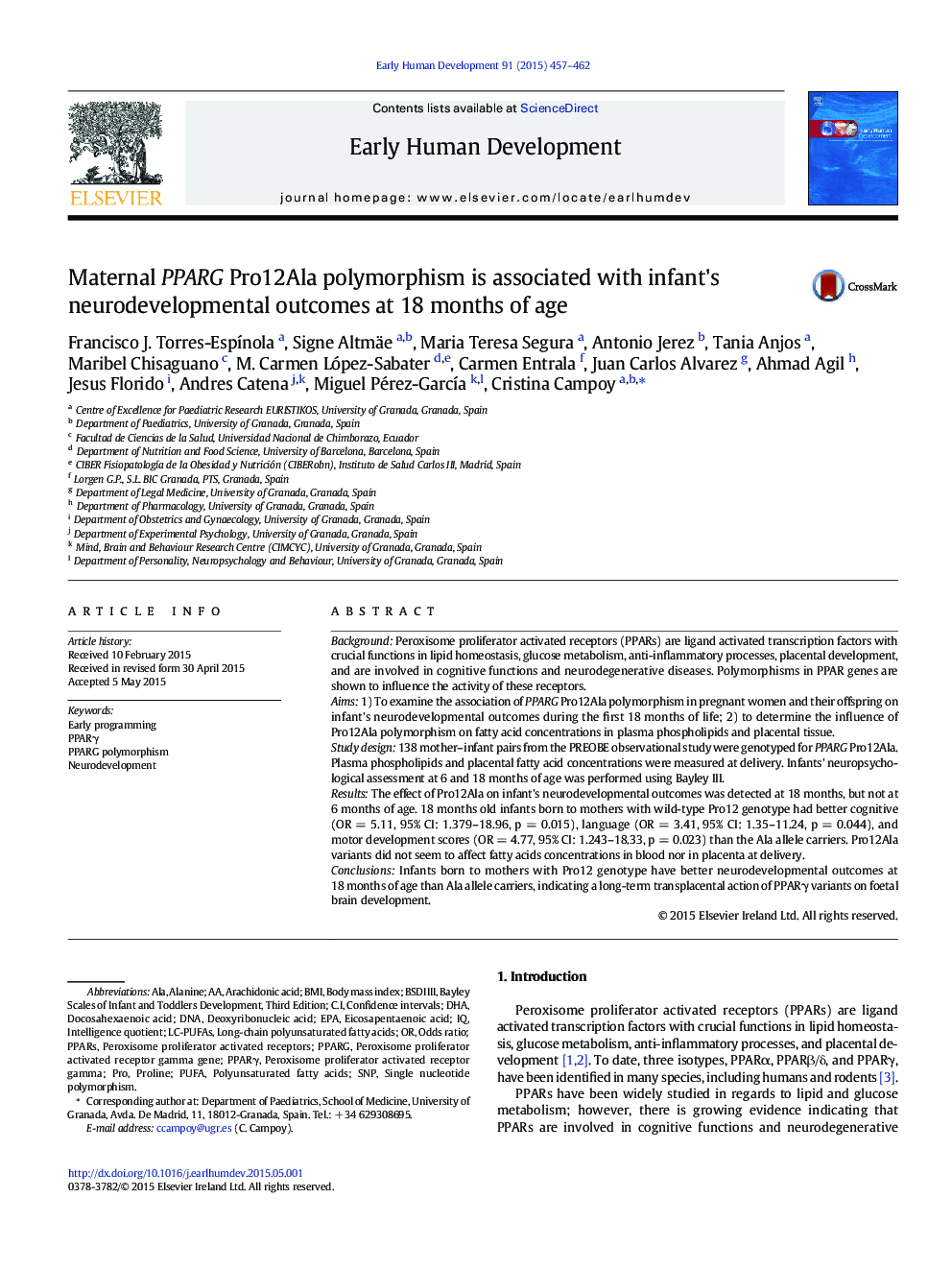| Article ID | Journal | Published Year | Pages | File Type |
|---|---|---|---|---|
| 3916403 | Early Human Development | 2015 | 6 Pages |
•Maternal genetic background influences fetal programming.•Intrauterine mechanisms depending on mother's metabolic alterations can influence child's neurodevelopment.•PPARG Pro12Ala may lead to aberrant placental nutrients' transfer to fetus and thus affect fetal brain development.•PPARG Pro12Ala has long-term effect on infant's cognitive, language and motor development.
BackgroundPeroxisome proliferator activated receptors (PPARs) are ligand activated transcription factors with crucial functions in lipid homeostasis, glucose metabolism, anti-inflammatory processes, placental development, and are involved in cognitive functions and neurodegenerative diseases. Polymorphisms in PPAR genes are shown to influence the activity of these receptors.Aims1) To examine the association of PPARG Pro12Ala polymorphism in pregnant women and their offspring on infant's neurodevelopmental outcomes during the first 18 months of life; 2) to determine the influence of Pro12Ala polymorphism on fatty acid concentrations in plasma phospholipids and placental tissue.Study design138 mother–infant pairs from the PREOBE observational study were genotyped for PPARG Pro12Ala. Plasma phospholipids and placental fatty acid concentrations were measured at delivery. Infants' neuropsychological assessment at 6 and 18 months of age was performed using Bayley III.ResultsThe effect of Pro12Ala on infant's neurodevelopmental outcomes was detected at 18 months, but not at 6 months of age. 18 months old infants born to mothers with wild-type Pro12 genotype had better cognitive (OR = 5.11, 95% CI: 1.379–18.96, p = 0.015), language (OR = 3.41, 95% CI: 1.35–11.24, p = 0.044), and motor development scores (OR = 4.77, 95% CI: 1.243–18.33, p = 0.023) than the Ala allele carriers. Pro12Ala variants did not seem to affect fatty acids concentrations in blood nor in placenta at delivery.ConclusionsInfants born to mothers with Pro12 genotype have better neurodevelopmental outcomes at 18 months of age than Ala allele carriers, indicating a long-term transplacental action of PPARγ variants on foetal brain development.
